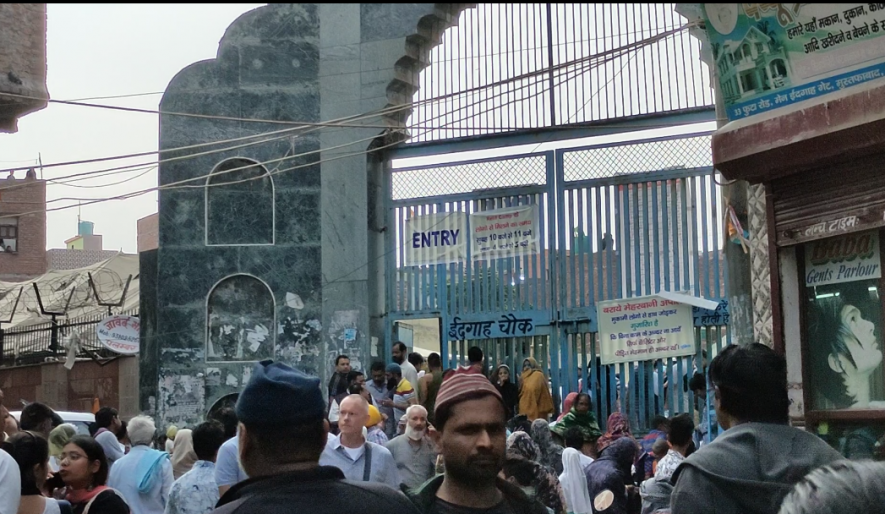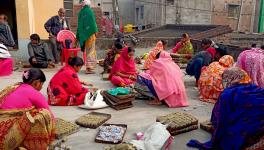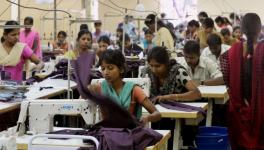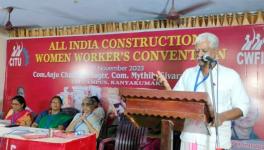Invisible Women and Delhi Riots: Notes from a Relief Camp

The Mustafabad Idgah in Shiv Vihar is now a makeshift relief camp for the victims of the communal carnage that erupted last week in North East Delhi. The Muslim families of Shiv Vihar who found themselves in the midst of the violence, left their houses in an attempt to save their lives. They took refuge in houses in neighbouring localities, often helped by complete strangers. These families are now slowly trickling into the Idgah, many in the hope of getting some form of relief and compensation from the state government.
The Aam Aadmi Party government, despite its lackadaisical approach in controlling the violence and providing adequate medical support to the affected, has officially announced compensation for the victims. The official website of the Delhi government lists out the assistance scheme, including the various categories of losses and amount designated to each.
The compensation is to be provided to families who have lost members, received injuries, and suffered loss of animals and rickshaws. Assistance is also applicable for damage of houses and household items. Uninsured commercial units also find a place in the list.
However, the adequacy of the assistance amount allocated to each household under any of these conditions, remains debatable. The arduous process of registering a claim for compensation and proving the degree of loss is yet another concern. But, there is one loss which remains conspicuously absent from any measure of accounting – home-based work by women.
Like many other parts of the capital, there is prevalence of home-based work in working class areas in its North Eastern fringes. Home-based work is a form of putting out a system where different segments of petty production are distributed among women working from within their houses. They either produce finished products or contribute to products which are assembled for a finished item, involving a range of unskilled to skilled labour.
These women workers, seen as a cheap source of labour, have become an integral part of the increasingly informalised economy. The home- based workers are the lowest denominators in a complicated web of contractors and sub-contractors. These workers keep on shifting between different types of work depending on the availability. They remain outside the ambit of any social security coverage.
Extremely low piece-rated payments and back breaking work are involved in such home-based work, making it exploitative. Women essentially see it as a source of supplementary income for their families. Various studies have found that this form of work has increasingly become an important source of household incomes, within the environment of growing underemployment and unemployment in the Indian economy.
The women, with other family members, including the children who chip in at times, spend multiple hours to earn as low as Rs 30-40 a day. The work ranges from sticking bindis, removing extra threads from readymade garments, stitching buttons, tailoring, embroidery, making key rings, sorting and packaging items.
Home-based work, largely employing women, remains an anomaly within the overall trend of falling female work participation rate in the employment statistics. This partly arises from such work being unrecognised and considered unproductive and thus falling out of any estimation. Often, these incomes are saved by women, away from the men’s eyes to spend on items which skip the patriarchal economic allocations of the household.
After the riots in Delhi, the Delhi Solidarity and Relief Committee, formed as a broad-based citizens’ initiative, began various relief related activities among the riot victims. This includes helping the victims fill forms issued by the Delhi Government to apply for compensation, along with carrying out surveys to record and estimate the losses suffered by them.
Volunteers have been visiting the different riot-affected areas and camps. As part of one such team that visited the makeshift relief camp in the Mustafabad Idgah, we interacted with various Muslim women, whose houses have been gutted or have been looted and ransacked.
All these women turned out to be doing some kind of home-based work, a fact which came out after some prodding. Due to the area’s proximity to garment industries located in Shastri Park and Gandhi Nagar, a number of home-based work in North East Delhi relates to tailoring, removing extra threads from readymade denims etc.
Some women said they lost close to Rs 30,000 that they had saved from several months of such work, which was looted from the houses. With the compensation policy of the state government asking for documented proof, these kinds of losses fall out of any economic estimation. These women work as undocumented workers, thus establishing an economic loss is a challenging proposition.
One of these women was Kulsum (name changed), 25, a mother of three children. Her eldest daughter is four while the youngest is one-month- old boy. Her husband, an auto rickshaw, driver was missing since the riots broke out. They are residents of Budh Bazaar, in Shiv Vihar and live in a rented house belonging to a Hindu owner. On information gathered later, her husband was picked up by Delhi Police on February 24, on charges of rioting, which he denies. His auto rickshaw was also seized.
On February 24, Kulsum had gone out to buy vegetables along with her children, but could not get back home as the situation had become violent. The next two nights, she slept at Guru Tegh Bahadur Hospital. Then, with some help, she managed to reach the relief camp at the Idgah in Mustafabad. She has heard that all their belongings, including the meagre sum of Rs 1,500 she had saved, were looted.
Kulsum cannot read and write, carried no documents and had no bank account. She didn't remember her own mobile number. As a home- based worker, she removed extra threads from readymade denim pants, making a much-needed contribution to the family’s income.
When we met Kulsum her blank eyes gave away her worries of the bleak future which awaits her; of raising her three kids with everything lost to the riots. Going back to her house is unimaginable right now, as the situation remains volatile and cases of violence are still being reported from the area. To top it, Kulsum's chances of proving her loss to the authorities and receiving compensation is a path filled with uncertainties.
The impact of this communal frenzy is immense for each and every affected family, but perhaps a little more for several invisible and undocumented home-based workers, such as Kulsum. Their economic losses continue to be hidden from the state’s recognition. With their homes lost, the livelihoods of these riot-affected home-based workers stands jeopardised.
The writer is Programme Officer, Focus on the Global South. The views are personal.
Get the latest reports & analysis with people's perspective on Protests, movements & deep analytical videos, discussions of the current affairs in your Telegram app. Subscribe to NewsClick's Telegram channel & get Real-Time updates on stories, as they get published on our website.
























